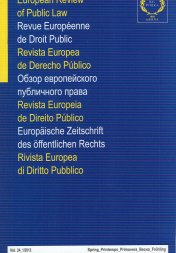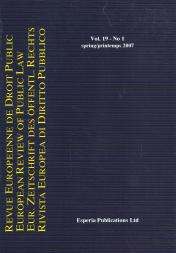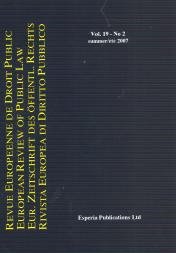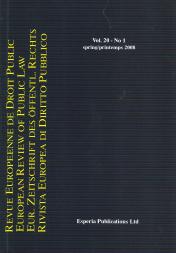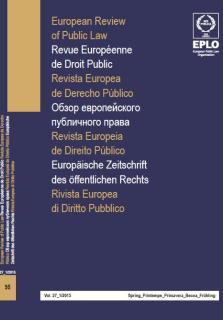
New Challenges to Democracy - Case Study
Charilaos Nikolaidis
LLB, LLM, PhD in law
National reports allow us to build a mosaic on the basis of which the new challenges to democracy can be discussed in a practical and realistic manner. It is hard to deny that the international sphere is inextricably linked to the national legal orders which comprise it; and vice versa. Comparisons among different national systems generate an overview which is valuable in identifying the precise nature of the issues at hand. They help create the parameters of a truly constructive dialogue. This case study aims to present the larger image created by the national reports submitted by the following countries: Albania, Armenia, Cyprus, Denmark (two reports), Georgia, Greece, Poland, Portugal, Serbia, Slovakia, Turkey and Ukraine. A questionnaire was handed out and reports from these twelve countries came in. The goal of each report has been to answer the 12 questions contained in the questionnaire, with reference to national experience. The present exposition of the findings follows the layout of the questionnaire, which is divided in three broader topics, each analyzed under the light of four questions. The goal is to present the overall impression in a brief manner, a more detailed analysis having already been provided by the individual reports.
Les rapports nationaux nous permettent de construire une mosaïque sur la base de laquelle les nouveaux défis de la démocratie peuvent être discutés d’une manière pratique et réaliste. Il est difficile de nier que la sphère internationale est inextricablement liée aux ordres juridiques nationaux qui la composent, et vice versa. Les comparaisons entre les différents systèmes nationaux génèrent une vue d’ensemble précieuse pour identifier la nature exacte des problèmes qui se posent. Elles aident à créer les paramètres d’un dialogue vraiment constructif. Cette étude vise à présenter la plus grande image créée par les rapports nationaux soumis par les pays suivants: Albanie, Arménie, Chypre, Danemark (deux rapports), Géorgie, Grèce, Pologne, Portugal, Serbie, Slovaquie, Turquie et Ukraine. Un questionnaire a été distribué et ces douze pays ont rendu des rapports. Le but de chaque rapport était de répondre aux douze questions figurant dans le questionnaire, en liaison avec l’expérience nationale. L’exposé des résultats suit la présentation du questionnaire, qui est divisé en trois sujets plus larges, analysés chacun à la lumière de quatre questions. Le but est de présenter brièvement l’impression générale, une analyse détaillée ayant déjà été fournie par les rapports individuels.














